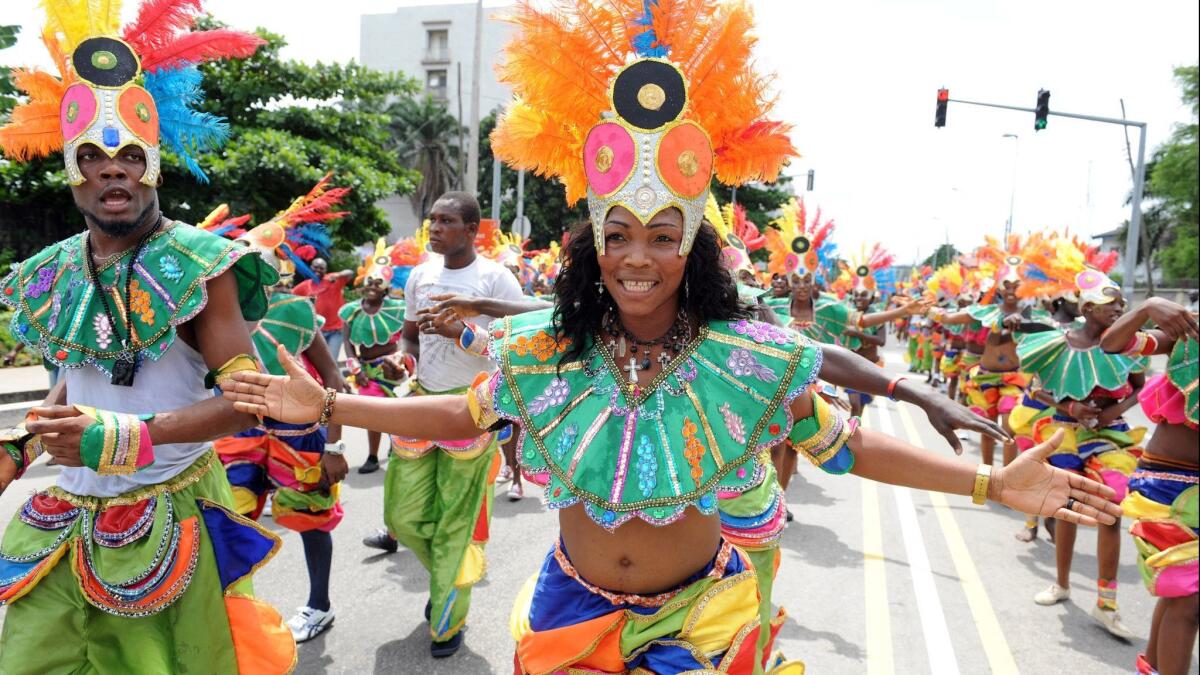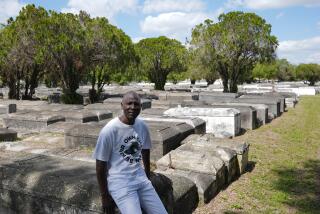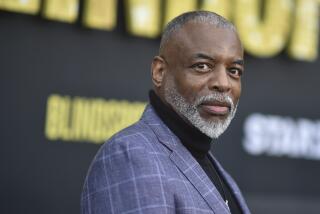Op-Ed: A DNA test restored my lost African ancestry. Or so I thought

I’m a black American whose family has been here for centuries. And our country’s “nation of immigrants” mantra has always rankled me a bit.
It implies that all the tired, poor, huddled masses landing on our shores came to America in search of better lives. That writes people like me out of the narrative, in a nation that benefited mightily from the unpaid labor of our ancestors.
My dark-skinned forebears didn’t come here willingly. They were brought to America from Africa in chains; disposable commodities, enslaved then bought and sold like property. Their names were erased, their journeys basically untraceable.
I remember as a kid listening to my white classmates talk about their families’ origins; they’d made their way to Cleveland from Italy, Ireland, Hungary, Poland, Czechoslovakia, with exotic languages, lunches and customs.
I’ve decided, science be damned, to remain Nigerian. And I’m not the only one.
The only roots I knew were in Alabama and Georgia, where my parents were born. They fled the South in the first half of the 20th century, running not toward visions of freedom but away from homegrown bigotry.
My mother yearned for the basics of dignity; to be able to try on a hat in a department store or eat at the lunch counter in Woolworth’s, in a state where the governor didn’t promise “segregation forever.”
My father left Georgia one step ahead of an angry mob that aimed to lynch his brother for refusing to step off the sidewalk as a white man passed. That brother hid in a hastily dug hole in the family cornfield, until they made their getaway in the middle of the night.
My family’s migration stories don’t feature America as a shining city upon a hill. The only border we crossed was the Mason-Dixon line, escaping the clutches of Jim Crow and the Ku Klux Klan.
I knew there were also white branches in our family tree; I’d visited the small century-old family cemetery near the farm where my mother had grown up. Her father, a “mulatto,” was buried there — alongside a few Confederate soldiers who shared his genes. When my “colored” grandmother died, my mother had to ask for permission to bury her next to her husband, among all those dead white bodies.
The white side was no mystery to me. There were stories and records and inheritances, and even a town named after them.
But the generations of black people who shaped my identity? Their history was off limits to me until do-it-yourself DNA testing became a thing.
Two years ago, I swabbed my cheek and spit into a tube and sent those samples off to two different testing groups.
Six weeks later, two nearly identical verdicts arrived and the shock set in.
More than half of my DNA — 54% — was European, mostly English, Scotch and Irish, with a sprinkle from Russia, Scandinavia and the Iberian Peninsula.
That left me amused. I figured I ought to keep the results on me at all times, just in case some white person wanted to call the cops if I delayed ordering in Starbucks, or I cashed too big a paycheck, or was talking on my cellphone in a hotel lobby. “Hey, guys, ignore this brown skin and check my documents. I’m actually one of you!”
I was surprised to find no trace of Native American blood, despite my grandma’s long black hair and high cheekbones. Not even the droplets claimed by Elizabeth Warren — though we heard family stories too.
But what meant the most to me was one specific entry in my ethnicity rundown: Nigerian 24%. That was the single biggest chunk of me.
Just seeing the word gave me a rush of something I still can’t describe: a mix of excitement, wonder, pain and pride.
I thought of awkward moments in the past, when some stranger would randomly ask, “Where are you from?” when they couldn’t place my particular blackness.
Now, if I chose, I could offer up a label: My people are from Nigeria.
I was no longer some random progeny of the Middle Passage. My mere existence suddenly felt wondrous.
I imagined that one particular Nigerian woman or man enduring the misery of the voyage and the horrors of slavery, so that I could come into being. Enduring, procreating and passing along to me some of that strength and resiliency.
And I couldn’t have chosen a better African country to be from! Producer of great doctors, brilliant writers, hard-working students and royal heirs to vast fortunes they promise to share if you are kind enough to provide your bank info.
My new heritage seemed to explain everything: My mother’s laser focus on education. My passion for reading and writing. My father’s hustle, entrepreneurial spirit and confidence in his own considerable charm.
I reread every Nigerian author I’d enjoyed, finding my family in the characters — as if my father hailed from Lagos instead of Lithonia, Ga.
Nigeria seemed to ground me; I was from someplace too.
Then the announcement came: Ancestry.com had “updated” its interpretation of my DNA. As of September 2018, I was no longer a daughter of Nigeria.
Everyone in the Ancestry database would see a change, the company said, because “reference populations and the ethnicity algorithm underwent significant development.”
The company’s African profile data was particularly wobbly. According to newly refined measurements, I was still 46% African, but my DNA alignment was dramatically different: 26% Benin/Togo; 10% Cameroon, Congo and South Bantu People; 7% Mali; and 2% Ivory Coast/Ghana.
And only 1% Nigeria (insert crying emoji here).
I got the news during the holidays from my brother, who’d already made peace with the genealogical shift.
While family members argued — on Facebook, in phone calls, at family gatherings — about what our new percentages meant, my brother steered me to Ancestry’s explanation, as if that could settle things:
“Don’t worry, your DNA hasn’t changed. What has changed is how much we know about DNA, the amount of data we have available and the ways we can look at it for clues to your past.
“Africa presents special challenges. The African continent is the ancient birthplace of humanity, and humans there are the most genetically diverse on Earth. This makes Africa a tricky place for ethnicity estimation.”
I don’t recalling them using the word “estimate” when they pitched the DNA tests. In essence, they were guessing then and they’re making better guesses now. I feel like a rube.
So why does trading in Nigeria for Benin and Togo feel like such a comedown to me? No offense to those other African nations, but I enjoyed the stature that a headliner country like Nigeria brings.
Perhaps it’s a salve for the ache of being relegated to the bottom rung of the racial hierarchy here.
Enter the Fray: First takes on the news of the minute »
Then why didn’t the news that I’m technically more white than black carry that same sort of resonance?
Because identity is more than ancestry, even in these overtly tribal times. It’s a reflection not just of our genes, but our experiences, our values, our idiosyncrasies, who we choose to be.
DNA doesn’t recognize man-made national boundaries, and identity isn’t dictated by ancient ethnic ties.
So, I’ve decided, science be damned, to remain Nigerian. And I’m not the only one. My cousin Russ is still rocking a dashiki in his Facebook profile pic.
Sandy Banks is a former Los Angeles Times reporter, editor and columnist. She is a senior fellow with the USC Annenberg Center on Communication Leadership & Policy
More to Read
A cure for the common opinion
Get thought-provoking perspectives with our weekly newsletter.
You may occasionally receive promotional content from the Los Angeles Times.






